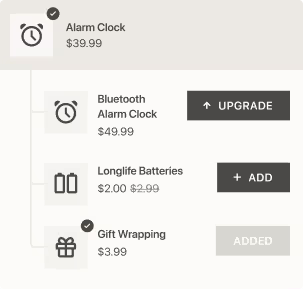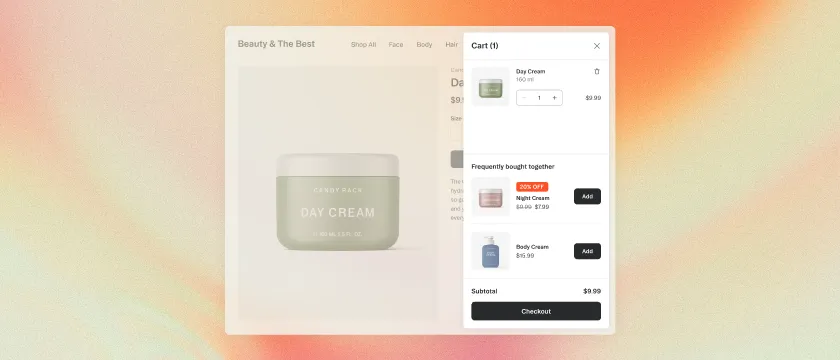The secret to the sustainable development of an e-commerce business is not how many sales or conversions you get but how high is the level of customer loyalty and retention on your store.
Who are loyal customers?
Your most loyal customers are those customers who consistently make purchases from your company, speak highly of your brand to friends and family, and may go out of their way to leave positive reviews and share other content about your products and services.
They can come from any demographic, but often they are individuals who have a strong emotional connection to your brand. But there are no loyal customers alike: some will be more active as brand advocates, while others will just continue occasionally returning to your store.
Most importantly, there are different foundations for customers to grow loyal to your brand. Let’s explore the 5 main reasons why consumers get loyal and how you can leverage those reasons to improve retention.
5 “whys” behind customer loyalty (+ real examples from brands)
The major things that loyal customers may like about a brand include:
- The quality of products or services
- Personalized shopping experiences
- Matching brand values
- Attractive perks and rewards
- Caring customer service
Let’s go through each of these points.
1. Provide high-quality products or services
Undeniably, the quality of what you’re selling builds trust and loyalty. Customers that appreciate the quality of your products may be willing to pay a higher price for them.
For instance, the cookware company Le Creuset is known for its exceptional quality. Its products are often more expensive than those of its competitors, but many customers are willing to pay a premium for superior performance and durability.
The brand is so good at communicating the quality benefits of its pots and pans that some customers who can’t afford the products are still following Le Creuset and expressing their admiration. You can see that in a comment below the company’s post about counterfeited products (monitoring potential fraud and explaining it to consumers also shows dedication to quality standards):

When a store is 100% confident about its product—its materials or ingredients, the way it’s manufactured and tested, etc.—it can proudly offer a lifetime warranty which will boost trust and bring more loyal customers.

2. Personalize your communication
Loyal customers may appreciate a brand that takes the time to personalize their experiences. This can include personalized recommendations, emails or other marketing materials, and special offers or promotions tailored to their interests.
Using quizzes is a great way to employ personalization and increase conversions thanks to the data shoppers will willingly share in a fun and engaging way. For instance, an underwear brand ThirdLove has the Fitting Room section on their website that leads to a simple—yet well-thought-out and heart-warming—quiz.
It customers a series of questions about their fit preferences and body type, and then recommends products that are tailored to their specific needs.

Together with this personalized approach, ThirdLove offers a Try Before You Buy program, which allows customers to try on bras at home before making a purchase. Shoppers can try the products for 10 days and only pay if they like them; plus, all returned bras go to women in need. This way, the brand shows its true dedication to customer satisfaction.
Apart from helping customers find the best-fitting product, you can continuously offer them relevant deals based on their order history. Use customer segmentation insights to create personalized emails for each segment.
For instance, our app Loyal will automatically divide your customer based into 6 groups which you can import into an email marketing tool like Klaviyo. Try out the app for free for as long as 30 days.
3. Communicate strong brand values
Many loyal customers are drawn to brands that align with their values. For example, they may appreciate a brand that is environmentally conscious, supports a good cause, or has a strong commitment to ethical practices.
A nice example of a brand that builds loyalty through values is Patagonia. It’s a clothing company that is known for its commitment to environmental and social responsibility. The company uses sustainable materials in its products and donates a percentage of its sales to environmental causes.
In sync with its commitment to sustainability, Patagonia has also cultivated a loyal customer base through a strong sense of community. The company has a program called Worn Wear, where customers can give their used clothing for credits that can translate into discounts for their next purchases.
Patagonia also collects stories to share on its Worn Wear accounts on social media to promote the idea of long-lasting clothing:

Moreover, the brand goes the extra mile to provide DIY repair instructions, encouraging customers to prolong the life of their gear. Loyal shoppers share their repair stories on Instagram, promoting both the brand image and sustainability in general. This way, Patagonia is creating a community of followers who share the same values.

With that said, customers who are passionate about certain issues are willing to pay a premium for products from a brand that corresponds to their values.
4. Craft an irresistible loyalty program
Some loyal customers may appreciate a brand that offers loyalty rewards. This can include exclusive discounts, free products or services, or early access to new products.
For example, the popular coffee chain Starbucks has a loyalty program where customers can earn stars for every purchase they make, which can then be redeemed for free food and drinks.
Apart from giving out discounts or free stuff, you can reward loyal customers by offering them exclusive access to new products or limited-edition items.
For instance, Nike’s loyalty program allows customers to earn points for purchases, move up through the tiers, and receive additional benefits, such as free shipping, personalized product recommendations, and access to exclusive product launches and events. NikePlus members also have access to exclusive product customization options, including the ability to personalize certain shoes with their own unique designs.

By showing appreciation and offering rewards, you can help turn loyal customers into brand advocates who will help spread the word about your company.
5. Provide excellent customer service
Loyal customers may appreciate a brand that goes above and beyond to provide excellent customer service. This includes not only helpful and friendly support staff that addresses issues and concerns but also easy returns or exchanges.
For example, the online retailer Zappos strategized their customer service to offer something most stores would consider too expensive and impractical—365-day free returns. In addition, Zappos has a 24/7 customer service hotline that is known for its friendly and helpful staff.

They are truly committed to providing positive shopping experiences, and their calls with consumers can reach up to shocking 10 hours. The company even moved its support service from San Francisco to Las Vegas because the latter option allowed for easier recruitment to ensure the 24/7 support operation.
Even though Zappos spends a lot of resources on maintaining such a high standard of service, the results are worth it, and they get around 75% of their revenue from returning customers. The convenience of the 365-day return policy and free shipping makes people more loyal. In fact, more than 90% of shoppers tend to make repeat purchases when they are satisfied with customer service.
Learn from the best customer retention strategies
Get inspired by positive customer retention models used by other brands and come up with your own approach to loyalty. Speak about your values and the quality of your products, make your communication with customers personal and relevant, and know how to say thank you to shoppers that are loyal to your brand.

















